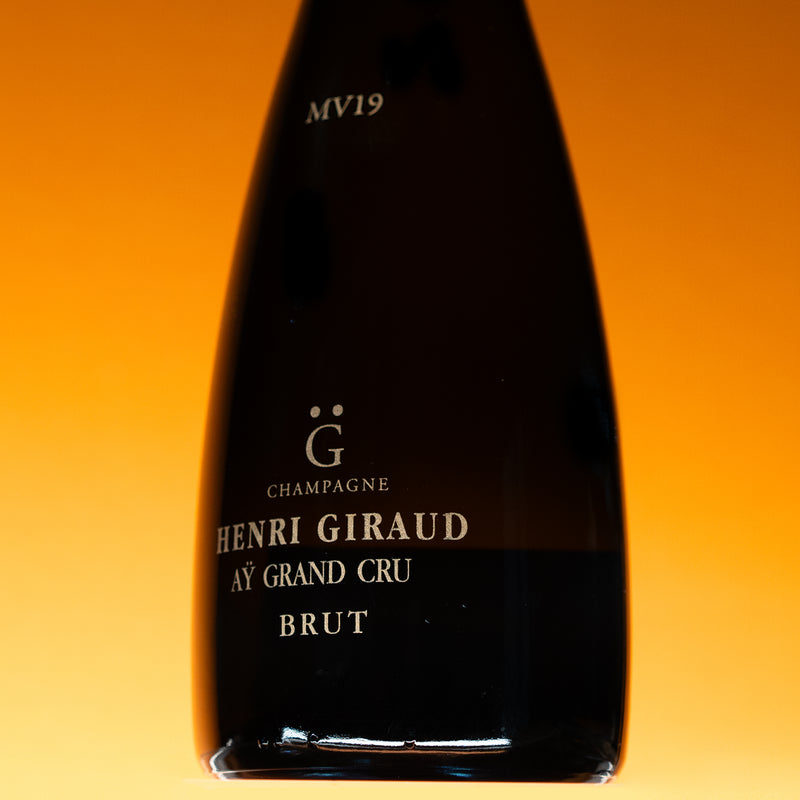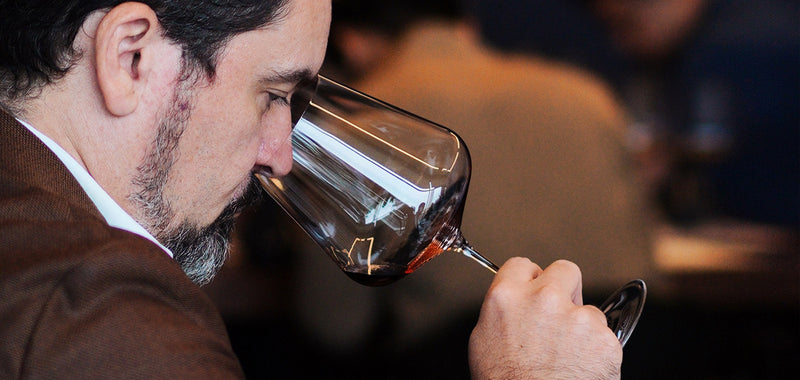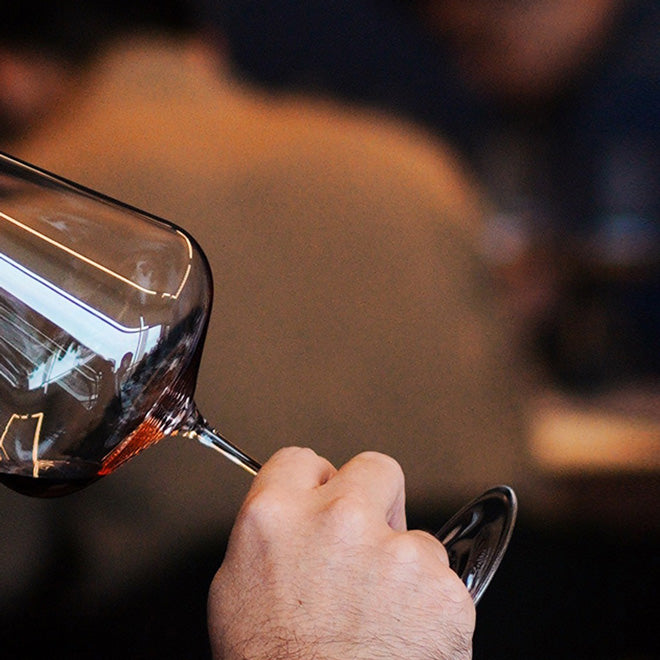How often does one get to sit down with a Master Of Wine and ask them to teach you more about what it takes to earn the title? About as rare as sampling a legendary vintage.
When the opportunity to interview Richard Hemming, Master Of Wine, came my way I knew I had to take it. Intimidated would be the first word I use to describe how I felt as I walked into the office of 67 Pall Mall Singapore on a Friday afternoon to meet the man who is heading up one of Asia's most exclusive wine clubs, yet pretentious is not a term I will ever be able to use, to describe him.
Few can say that they have met a Master Of Wine and I’m glad that I can count myself as one of them. As someone who enjoys a good bottle every now and then, I feared that my lack of knowledge about vino would show. That quickly disappeared as we got into the interview. Through the 45 minutes that we spent seated in conversation, we explored topics that were beyond the world of wine. From the most life changing book he has read, his favourite place in Singapore and most importantly — how he became a Master Of Wine whom we can count on today to curate the list at 67 Pall Mall, this is my encounter with Richard Hemming, Master Of Wine.

An Introduction
As I seat myself down at the conference table beside my subject, Hemming strikes me as a calm and affable individual. His journey to 67 Pall Mall Singapore was one of pure coincidence. Having moved with his wife in 2018, he found himself meeting with the owners of 67 Pall Mall, of which he is a proud member in London. A simple conversation about “doing a bit of work” soon evolved into a full-time job.
Becoming a Master Of Wine is an accolade that Hemming earned after a period of seven years with intense training. While most assume that this means he holds the answers to any and every question about wine, he is quick to dispel that notion. In his opinion, no one knows every detail about the world of wine.
“Sometimes I think people assume that Masters of Wine are these sort of pretentious, very rarefied people, and I really have found it's the opposite.” said Hemming as he tells me his favourite thing about his job. He added “I know a lot of the 400 or so Maters Of Wine who are alive today, and almost all of them are down-to-earth, very humble, and they know the limits of their knowledge.”You could spend your entire life researching one tiny corner of burgundy, and you would never know everything,” he said. This humility — and willingness to admit when an answer evades him — that he shares with other individuals who hold the title.
To earn his title, Hemming had to do more than simply “taste loads of amazing good stuff” as he does today. In his own words, there are two parts to the process, the first of which is boring but essential where it is “you, in absolute silence, with a set of wines”. Over the course of seven years, he spent nearly half of it simply writing a dissertation-style research paper that showed off his knowledge.
“You taste as much as you can, but under very controlled circumstances. A mistake that is often made is that you might go to a big tasting and taste everything, compare lots of different things” said Hemming. He added “You're not really able to get the correct information in those situations. You really have to do it in exam conditions. Very sterile. Actually quite boring. Most people think wine tasting is gonna be this super fun thing.”
The other, he said, is purely theoretical. “You have to learn, off by heart, all the grape varieties, the regions, the wine-making techniques, the climate, the style of the vintage, so that when you get a wine, you're not just trying to pluck the facts out of thin air,” quipped the veteran wine reviewer.
He explained how the process is far greater than just tasting a wine. “You're tasting it and thinking, 'Okay, I think this is from Bordeaux. Here's what I know about Bordeaux. You have this style from this place. This vintage was hot, this vintage was cold.' And you start to piece together the arguments based on what you can taste. You have to have that theory there in the first place. So a lot of it is book learning. And I think that's a very good thing, but it's also, you know, it's an enormous amount of information to learn.”
Between the two areas, Hemming admitted that he found the research paper to be the most challenging yet also educational portion of his journey. “I'd never done any kind of post-graduate work in that way, and I had no idea how to manipulate data and how to do research and quantitative vs qualitative. Had no idea. So I learnt more in that process.”
The Writer
It is this love for writing that spurred him onto becoming a regular contributor for Janice Robinson on top of his bi-monthly write ups for Epicure. His start as a writer was purely by chance. Under 30 and working in a wine store in Sydney, he found himself wanting to write about his experiences during a vintage in McLaren Vale. One article to Janice Robinson later, and he found himself as a published author and on track to becoming a professional wine writer. It was here that he truly began his journey to become a Master Of Wine.
“When I got back to the UK (in 2008) I started to get to know fellow wine writers. A few of them were starting to study, and I realised if I wanted to be taken seriously, then I really needed to be aiming at the Master Of Wine”
He added that “it also gave me a really good topic to write about, so I kept a diary, which was published on Jancis's site, for the whole time that I studied.”
He shared that when writing about wine it is a skill to ensure that you do not sound pretentious. “One of the difficulties is that to talk about wine, you need to use language that sounds pretentious when you're not used to it,” he shared. “So if we're doing a tasting note, and I'd be saying to you, "Okay so it's deep ruby. It has pronounced plum aromas plus violet floral character." What I'm actually doing is I'm talking very technical terms that other wine lovers would understand, but it can sound very pretentious”
So how does one remove the pretentious air when it comes to wine?
“If you look at where wine meets the mass market, that's a good example of how these brands break down that kind of pretentiousness,” said Hemming.
He drew comparisons to a global brand called Barefoot, an affordable yet unmistakable brand that is owned by Gallo. Their consumer market was firmly aimed at the youth. So when they launched in the United Kingdom, they partnered with Surfers against Sewage to do a cleanup of Brighton Beach.
“They got loads of guys down there, and it was all 18-25 year olds, and they all cleaned up the beach, and it was like, this had nothing to do with where the grapes come from. That is not relevant”
“The point is, this is a lifestyle brand that appeals to people because they do some savvy marketing. They have their heart in the right place. The wine was good enough; that's important. Doesn't have to be amazing, but it has to be good enough, and it is good enough.”
As we continue talking about his journey so far, he reflects that he has evolved over the years from a wine writer to an on-camera personality and educator at private events.
It is at these private events where he can impart his knowledge to the masses. While most spend hours and money to earn a coveted spot being taught by a Master Of Wine, I took that as an opportunity to ask him for his expert advice on sampling wine. He narrowed it down to two basic questions:
1. Do you like it?
2. Why?
While he states that the first is the easiest question to answer, Hemming also acknowledges that not everyone is going to agree on the answer. “I think a mistake people often make in their first encounter in wine is, ‘Should I like this? Is this cool? Am I gonna look stupid if I say I like it? Is it too cheap? Is it too expensive?’ Whereas really, your own tastes are your own tastes.”
The decision he says is ultimately up to you. A perfect example is sherry. “Dry sherry is one of the world's greatest wines. It's one of the planet's greatest drinks. And almost everyone professional will agree,” Hemming said. “But almost everybody that tastes sherry for the first time doesn't like it. It's an acquired taste. And to acquire that taste, you have to understand why it is as it is.”
To truly understand the wine better, he says that you have to appreciate the story behind it. “Don't worry about, you know, getting it all right at first or looking good. Just concentrate on what you like, and then ask yourself why you like it.
The next step in his opinion is to ask for recommendation from a sommelier.

Wine In Asia
I was curious to know more about how wine fares in Asia. Hemming shares that Singapore has no shortage of wine. In fact, he has been able to find some truly interesting wines from Douro Valley and more. However, the same cannot be said for other parts of Asia. With less established infrastructures, being able to gain access to elusive wines can be far more difficult.
So what exactly does a Master Of Wine enjoy when he isn’t sampling wines?
A quick search of his social media and I find that he loves his ciders and beers on his days off. “If I’m drinking for just pure, kind of casual pleasure, then beer. I don’t really know anything about beer, and that’s why I like it!” The joy he derives from enjoying beer and cider is apparent. “With wine, you know, you can’t separate it from work. It’s my career.”
Beyond Wine
Outside of his love for wine and spirits, you can find Hemming playing the piano — something he picked up at the age of seven — or spending time outdoors. “I'm a big nature and outdoors lover, and in normal times I would've been travelling widely to see the wild corners of Asia, rather than to urban landscapes.” His love for the piano extends beyond it being merely a musical instrument he enjoys. When posed with a question to pick three things he hoped to have when stranded on an island, there was little hesitation in his answers.
“If I can get a piano on the island, I think that's probably enough. I love cooking as well. I cook everyday when I'm at home, so a frying pan. No, let's make it a wok; I can do almost anything in a wok. Maybe not very well, but it's a start. And then I would have a book, and it would be The Grapes of Wrath.”
An interesting reading choice, the book is one that Hemming claims to have changed his life when he first read it as a 12-year old. “Without wanting to sound too ridiculously dramatic, it changed my life when I read it the first time. It's an extraordinarily insightful book from another era that's very relevant today, about refugees and about how we treat each other” he said. “I think it's very compassionate and very tragic, and gripping. Every time I read it, I feel kind of more sensitive to what's going on in the world, I suppose? I mean that's what good literature does, it makes you think of the world in a different way.”
It remains to be seen if this different world view is one that will influence the man behind 67 Pall Mall Singapore. But if our conversation was anything to go by, I’m sure that the space will successfully bridge the gap between aficionados and those merely curious to know more about the seemingly exclusive world of wine.
67 Pall Mall opens in February 2022




.jpg?v=1730428338702)
